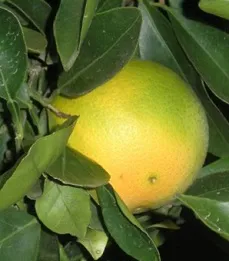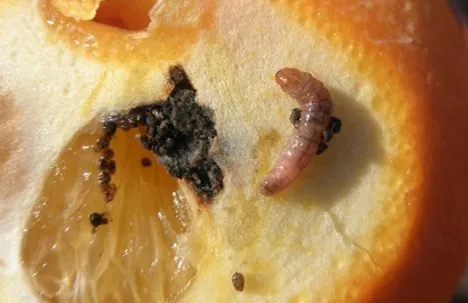 For the first time since 2018 when the South African citrus industry introduced its False Codling Moth Management System, the citrus industry has had to intervene in its normal functioning to manage false codling moth.
For the first time since 2018 when the South African citrus industry introduced its False Codling Moth Management System, the citrus industry has had to intervene in its normal functioning to manage false codling moth.
The decision to strengthen the shipping protocol for South Africa’s oranges for the rest of the season, on very short notice, is made possible by the agility of its systems approach, says Deon Joubert, Citrus Growers' Association envoy to the EU. The system’s requirements for continuous, thorough orchard and fruit monitoring had made it clear to the industry that there was a lot of false codling moth activity this year.
“Our scouting activity indicated that without further measures we may receive higher than normal notifications along the chain,” he says. “Therefore we’ve taken the decision to only allow exporters to make a booking for such exports as specified under option C in the citrus management system.”
“This shows the strength of the systems approach we’re following – through our continuous monitoring we’re able to pick up trends of FCM activity, like we did by the end of July on navels and Valencias, across the country. The management system allows us to be responsive and enables us to strengthen the system as needed.”
All sweet citrus are now to shipped according to a higher risk protocol, employing precooling and lower temperatures for a longer duration to accumulate cold units highly detrimental to any FCM larva in the fruit.
He emphasises that this only affects navels and Valencias, not soft citrus or grapefruit nor lemons, which are not a host for FCM.
 Larvae of the false codling moth, indigenous to South Africa, under tight control in citrus production areas
Larvae of the false codling moth, indigenous to South Africa, under tight control in citrus production areas
“We’re ramping up our safety measures in order to improve our compliance and we’re taking those steps proactively. False codling moth is present across South Africa but we keep it down through our Xsit mating disruption, virus sprays and orchard practices. We get it right 99.5% of the time which, when you look at the volumes we’re exporting this season – 9.6 billion pieces of fruit, it’s been calculated – is an incredible achievement.”
The end of the orange season is, in all events, close: by mid-September the CGA will probably look at voluntarily suspending orange exports to the EU because of the higher citrus black spot risk on late Valencias.
